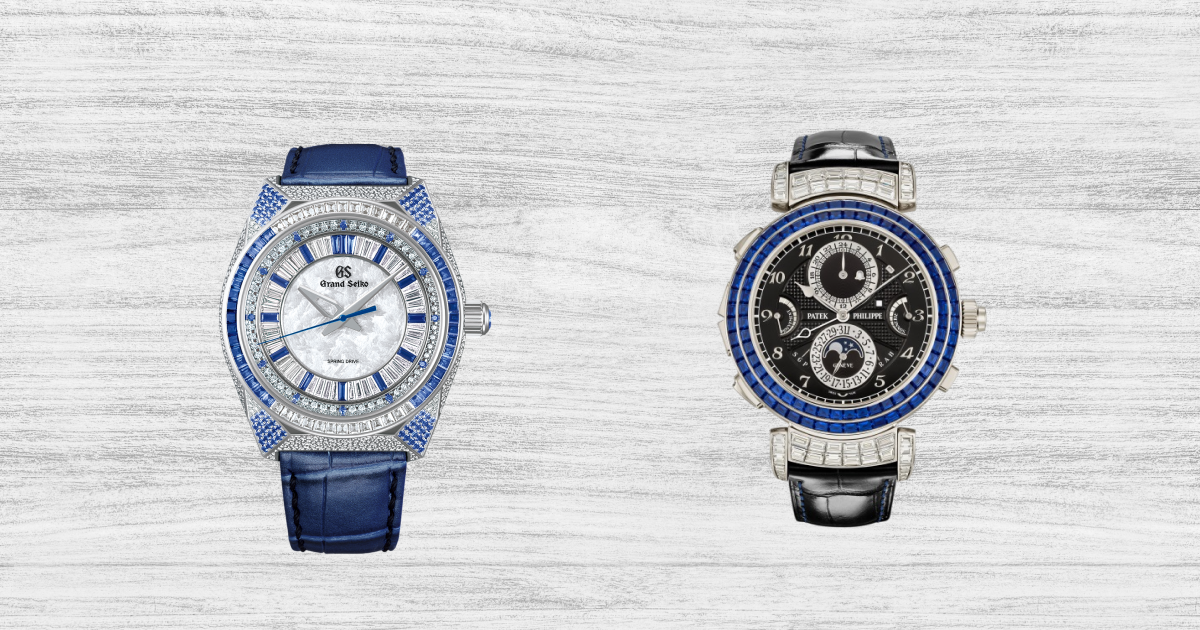
Newsletter Subscribe
Enter your email address below and subscribe to our newsletter

Enter your email address below and subscribe to our newsletter


The rivalry between Japanese vs Swiss watches has fascinated watch enthusiasts for generations. While Swiss watches are celebrated for their luxury, tradition, and meticulous craftsmanship, Japanese watches stand out with their innovation, affordability, and practicality.
Both have shaped the horology world in unique ways, offering diverse choices to suit various preferences. Whether you value timeless elegance or cutting-edge technology, understanding the strengths of each can help you decide which suits your style and needs. This comparison delves into the key differences and similarities, showcasing why both remain dominant forces in the watchmaking industry.
Swiss watches have long been a symbol of excellence, precision, and status in the global horology industry. However, since the mid-20th century, Japanese watches have emerged as formidable competitors.
With innovative technology, competitive pricing, and consistently improving quality, Japanese watches have become a popular alternative among watch enthusiasts. This article explores the main reasons why Japanese watches are often regarded as strong rivals to Swiss watches, along with a list of prominent Japanese watch brands.
Table of Contents
Japanese watches are renowned for their ability to develop groundbreaking technologies that often revolutionize the industry. One of the most notable innovations is the Quartz watch, introduced by Seiko in 1969.
This invention transformed the horology world with its high precision and significantly lower production costs compared to Swiss mechanical watches.
Additionally, technologies like Spring Drive, also developed by Seiko, combine the advantages of automatic mechanical movements with the accuracy of quartz technology. This innovation proves that Japan doesn’t just follow trends but sets new standards.
One of the primary reasons for the popularity of Japanese watches is their affordability without compromising quality. Brands like Casio and Orient offer high-quality watches at much lower prices compared to Swiss brands.
This affordability allows consumers from diverse backgrounds to own advanced watches without paying a premium.
For example, Casio G-Shock watches are known for their exceptional durability and advanced technologies, such as solar power, GPS, and Bluetooth connectivity, yet they remain budget-friendly.
Japanese watches are often designed with a more functional approach than aesthetic appeal. While design is still a consideration, their main priority is to create practical and reliable timepieces for various needs.
For instance, dive watches from Citizen, such as the Promaster, and Seiko’s Prospex are designed for professional divers with outstanding water resistance and robust materials.
In contrast, Swiss watches often focus more on aesthetics and status, making them more suitable as luxury accessories rather than practical tools.
Despite being more affordable, Japanese watches maintain assured quality. Many Japanese brands enforce strict quality control standards to ensure every product meets customer expectations.
Citizen, for example, is well-known for its Eco-Drive technology, which allows watches to operate using light energy, eliminating the need for frequent battery changes.
Japanese watches offer a wide range of products, from digital to mechanical watches, from casual designs to sports models, and from entry-level to high-end timepieces.
Brands like Seiko feature luxury sub-brands such as Grand Seiko and Credor, which directly compete with Swiss names like Rolex and Patek Philippe.
This diversity allows Japanese watches to cater to a broader market compared to Swiss watches, which often focus exclusively on the luxury segment.
Japanese watches often reflect the cultural philosophies of Japan, such as a dedication to perfection (Kaizen) and respect for tradition.
For instance, Grand Seiko often incorporates elements of Japanese culture into its designs, such as dials inspired by nature or meticulously handcrafted finishes.
As the global horology market shifted towards digital technology and smart features, Japanese brands like Casio led the way with digital watches such as the F-91W and GPS-enabled smartwatches.
This quick adaptability has allowed Japanese brands to remain relevant in the modern era, while many Swiss brands struggled to adjust.
| Aspect | Swiss Watches | Japanese Watches |
|---|---|---|
| Price | Premium | Competitive |
| Technology | More traditional, focus on mechanics | Innovative, focus on quartz and solar technology |
| Quality | Exceptionally high | High, but more efficiency-oriented |
| Design | Elegant and aesthetic-focused | Functional and practical |
| Philosophy | Exclusivity | Accessibility and reliability |
Here are some globally recognized Japanese watch brands:
Japanese watches have proven themselves to be formidable competitors to Swiss watches by offering technological innovation, reliable quality, and more affordable prices.
While Swiss watches remain a symbol of elegance and tradition, Japanese brands have captured the hearts of consumers with their more practical and efficient approach.
The competition between these two nations benefits consumers, providing them with a wider selection of watches featuring diverse features, styles, and price points.
In the ever-evolving world of horology, Japanese watches will continue to play a significant role in challenging Swiss dominance.